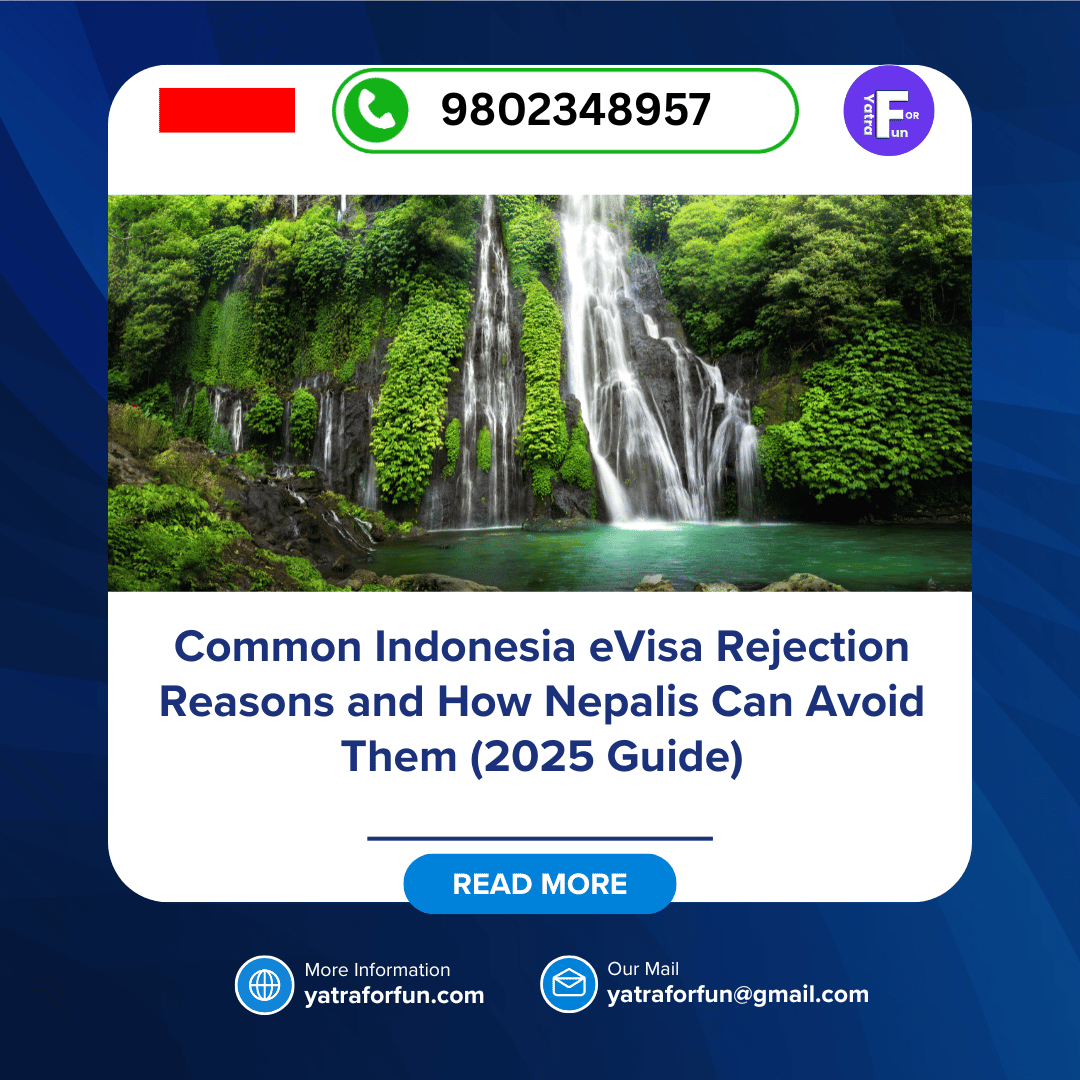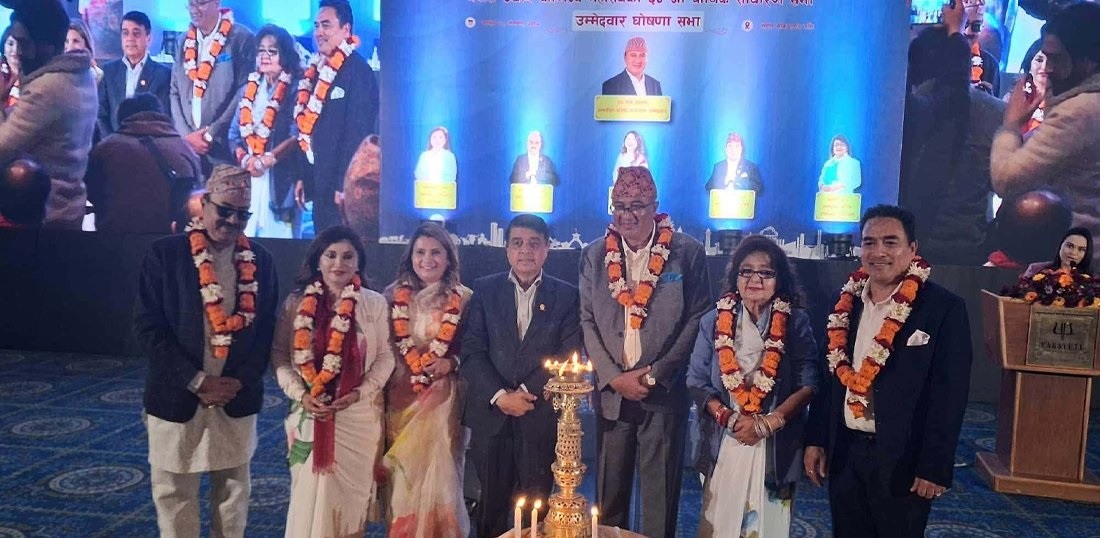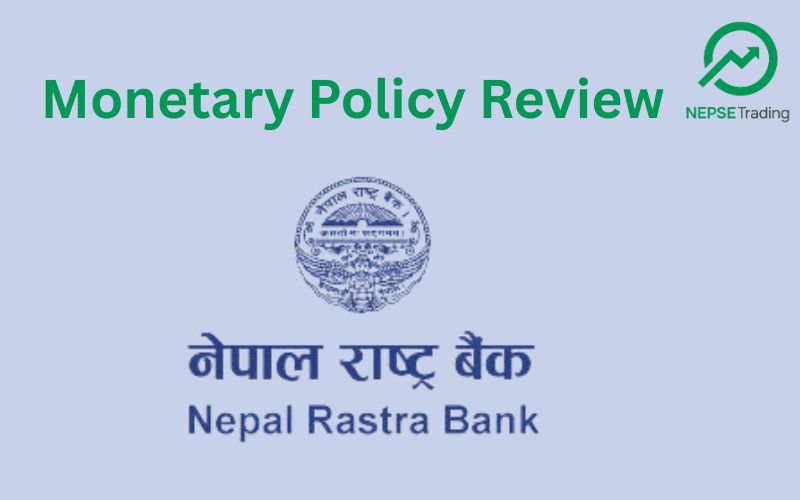By Sandeep Chaudhary
Common Indonesia eVisa Rejection Reasons and How Nepalis Can Avoid Them (2025 Guide)

Applying for an Indonesia eVisa (C1 Tourist Visa) can be an easy and smooth process — but many Nepali applicants face rejections due to avoidable mistakes. Understanding the common reasons for rejection and taking the right precautions can significantly increase your chances of getting approval on the first attempt. Indonesia’s immigration system evaluates every application carefully, checking documents, purpose of travel, and applicant credibility. Below are the detailed reasons why eVisa applications are often rejected and how Nepali travelers can avoid them.
The first and most frequent reason for rejection is incomplete or missing documents. Many applicants forget to upload certain pages of their passport, or submit blurred and unclear scans. Immigration requires clear passport copies (front and back), a recent color photo, proof of accommodation, flight itinerary, and a bank statement showing a stable balance of at least USD 2,000 for the last three months. Missing or poor-quality uploads can lead to immediate rejection. Always double-check your uploads before final submission.
Another major cause is insufficient financial proof. If your bank statement shows low balance, irregular transactions, or mismatched names, your visa may be denied. Indonesian immigration checks that you can financially sustain your trip and not overstay for economic reasons. Nepali applicants should maintain a consistent balance and provide salary slips or business income records if possible.
Incorrect or inconsistent information between your passport, visa form, and other documents can also cause rejection. Simple spelling errors, date mismatches, or wrong passport numbers can result in rejection without refund. Always review your form line by line before payment. Similarly, selecting the wrong visa type — such as applying for a tourist visa while mentioning “business meetings” as your purpose — can cause confusion and rejection. Be honest about your travel intent and choose the correct visa category (C1 for tourism, C2 for social visit, or D1 for business).
Your visa can also be rejected if you lack strong ties to Nepal or do not show a confirmed return ticket. Immigration authorities must be convinced that you plan to return home after your trip. To strengthen your case, include a return air ticket, employment letter, or property ownership proof in Nepal. Weak home ties often raise suspicion of possible overstay.
Technical mistakes are another hidden cause — for instance, uploading the wrong photo size or file format. Many users’ applications have been rejected because their photo did not meet official requirements (white background, neutral expression, full face, 3x4 size, under 500KB). Likewise, if you apply close to your travel date or make payment errors, your application may not process on time. The safest approach is to apply at least 2–3 weeks before departure, use a Visa/MasterCard or JCB card for payment, and always save transaction proof.
Applicants with previous overstays or immigration violations in Indonesia may also face rejections. If you had such a case, you should disclose it honestly and attach proof of settlement or explanation. Concealing prior offenses increases your risk of blacklisting.
Even after visa approval, entry at the airport is not guaranteed. Immigration officers at Denpasar or Jakarta have the final say. If your documents don’t match, or your purpose of stay seems inconsistent, they can deny entry. Always carry printed copies of your visa approval, passport, hotel booking, return flight, and bank statement when arriving in Indonesia.
For Nepali applicants seeking professional assistance, Yatra for Fun Pvt. Ltd., a subsidiary of Nepse Trading, offers end-to-end visa support for over 70 countries, including Indonesia. Their team helps you prepare documents correctly, verify application details, and avoid technical errors that commonly cause rejection.
Contact: 9802348957
Website: www.yatraforfun.com









